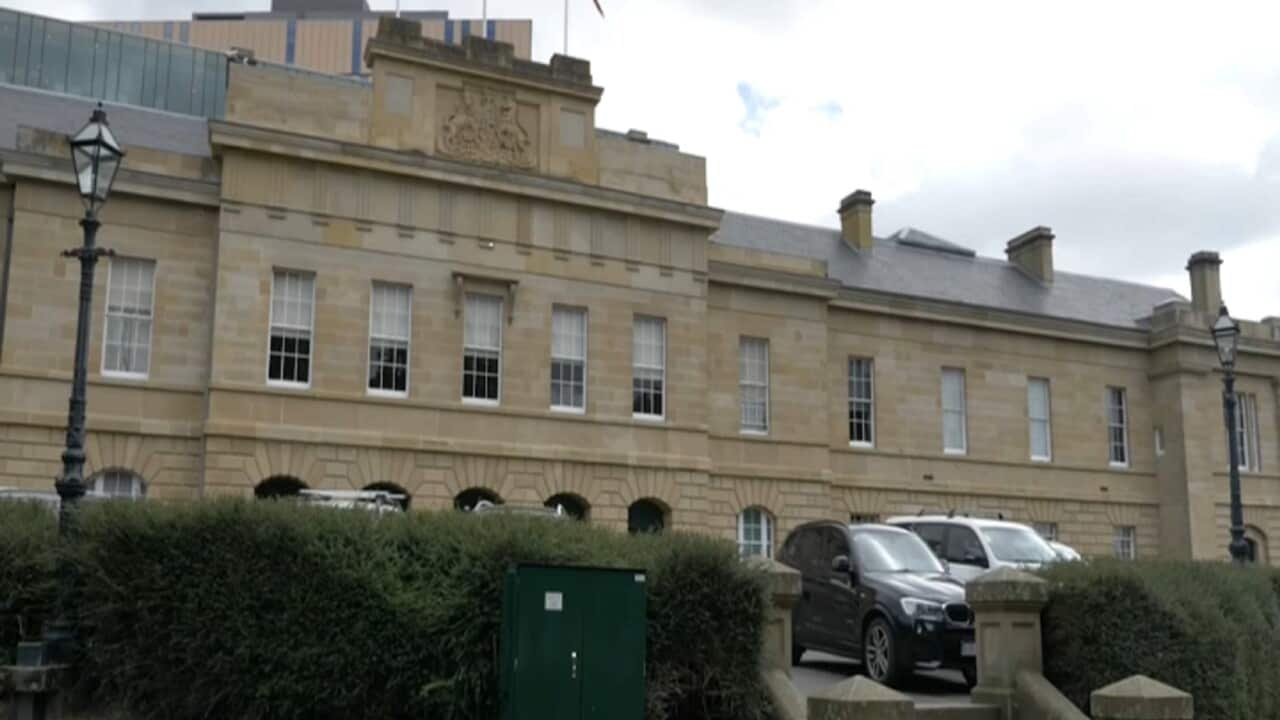Felix Goldschmied [[Gold-Schmidt]] was just a boy during the Holocaust but memories of the brutality his family experienced are still strong.
"Some of them were put to hard labour and some were killed straight out, like my grandparents, being elderly. They went straight into the gas chambers in Auschwitz."
A disturbing display of the Nazi salute on the steps of Victoria's parliament earlier this year prompted the government where he lives in Tasmania to go further than any other in the country and ban it.
The bill also bans the display of Nazi symbols with exemptions for “legitimate purposes", including academic, artistic, religious, scientific, cultural, educational or law enforcement purposes.
The display of the Swastika in the Buddhist, Hindi and Jain religions is also permitted.
George Goldsteen's father died in the Malthausen [[Malt-house-en]] concentration camp and he’s also broadly supportive of the legislation.
"But on the other hand, I'm a bit concerned, depending on how it's all done, that you are driving these antisemites underground."
Civil Liberties Australia argues the symbols themselves should not be banned, just the misuse.
According to CEO Bill Rowlings, "using a Nazi symbol to spread hatred should be banned, but not simply wearing it."
Survivors like Felix Goldschmied feel differently.
"It's hurtful and might be even frightening, maybe not to the average person in the street, because some of them don't even know what they represent. But to those that do know, the Jewish people, they represent bad memories."
The Hobart Synagogue is the oldest in the country.
They're highlighting the importance of education in stamping out antisemitism, as Jeff Schneider, the congregation's president explains.
"We see this legislation is just a small piece of the puzzle. I mean, education, particularly for young people is very, very important to combat you know, this hateful rhetoric."













